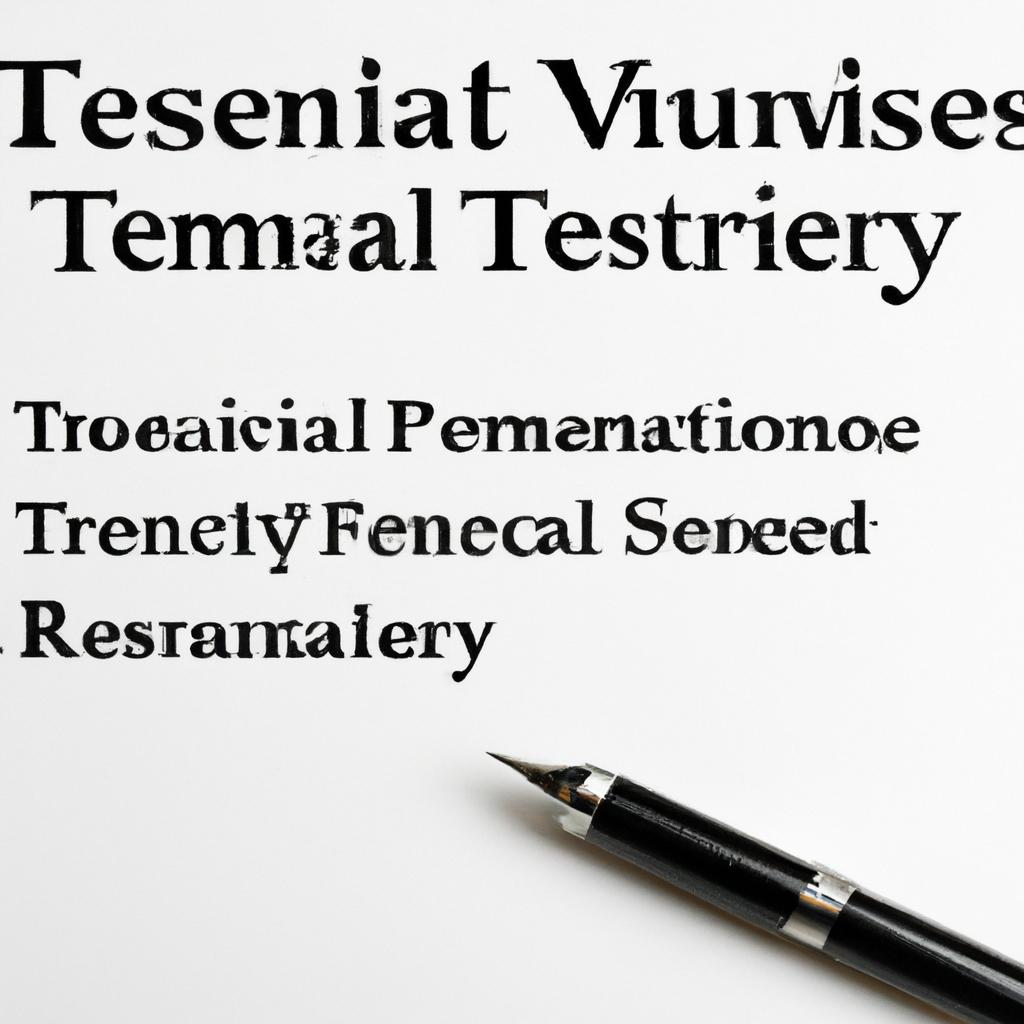Within the realm of estate planning, one may often encounter the terms testamentary trust and living trust. While both serve the purpose of managing assets and distributing them to beneficiaries upon the grantor’s passing, they have distinct differences that are important to understand. As experienced practitioners in the field of law, our team at Morgan Legal Group in New York City is here to shed light on the nuances of these two types of trusts and guide you through the complexities of estate planning. So, what exactly sets a testamentary trust apart from a living trust? Let’s delve into the intricacies of each to unravel the mystery.
Distinguishing Features of Testamentary Trusts
When it comes to estate planning, the use of trusts can be a valuable tool to ensure that your assets are distributed according to your wishes. Testamentary trusts and living trusts are two common types of trusts that individuals often consider. Testamentary trusts are created through a person’s last will and testament, while living trusts are established during the grantor’s lifetime. Below, we will explore the and how they differ from living trusts.
One key difference between testamentary trusts and living trusts is the timing of their creation. Testamentary trusts do not come into existence until after the death of the grantor, as they are established through the individual’s will. On the other hand, living trusts are created during the grantor’s lifetime and can be used to manage assets while the grantor is alive and after their passing. Additionally, testamentary trusts are subject to probate, which can delay the distribution of assets to beneficiaries, whereas living trusts typically avoid the probate process.

Key Differences in Formation and Activation
When it comes to estate planning, understanding the key differences between formation and activation of a testamentary trust and a living trust is crucial. A testamentary trust is created through a person’s will and only becomes active after the individual passes away. On the other hand, a living trust, also known as a revocable trust, is established during the individual’s lifetime and can be amended or revoked at any time.
Another key difference is the activation process. A testamentary trust goes through the probate process before it becomes active, which can be time-consuming and costly. In contrast, a living trust avoids probate, allowing for a smoother transition of assets and providing more privacy for the beneficiaries. Knowing these distinctions can help individuals make informed decisions when it comes to their estate planning needs.

Comparing Control and Flexibility Between Trust Types
When it comes to estate planning, one important consideration is the type of trust that best suits your needs. Testamentary trusts and living trusts are two common options, each with its own set of benefits and drawbacks. Understanding the differences between these trust types can help you make an informed decision about which one is right for you.
Testamentary Trust: A testamentary trust is created through a person’s will and only goes into effect after their death. This type of trust offers a high level of control, as the creator of the trust can specify exactly how they want their assets to be managed and distributed. However, testamentary trusts offer less flexibility during the creator’s lifetime, as they cannot be changed or revoked once the will is finalized. Additionally, testamentary trusts are subject to probate, which can potentially delay the distribution of assets to beneficiaries.

Considerations for Choosing the Appropriate Trust Structure
When considering the appropriate trust structure for your estate planning needs, it is important to understand the key differences between a testamentary trust and a living trust. A testamentary trust is created through a person’s will and only goes into effect upon their death. In contrast, a living trust, also known as a revocable trust, is created during the grantor’s lifetime and can be amended or revoked at any time.
One major distinction between the two types of trusts is the timing of when they become effective. A testamentary trust only goes into effect after the grantor’s death, while a living trust is effective immediately upon creation. Additionally, testamentary trusts are subject to the probate process, which can be time-consuming and costly, whereas assets held in a living trust avoid probate and can be distributed to beneficiaries quickly and efficiently. Consider your specific needs and goals when choosing between these trust structures to ensure your assets are managed and distributed according to your wishes.
Q&A
Q: What is a testamentary trust?
A: A testamentary trust is a trust that is created through a person’s will and only comes into effect upon their death.
Q: How is a testamentary trust different from a living trust?
A: A living trust is created during a person’s lifetime and can be changed or revoked at any time, while a testamentary trust is only created after the person’s death and cannot be altered.
Q: Can a testamentary trust be used for estate planning?
A: Yes, a testamentary trust can be a valuable tool for estate planning as it allows the grantor to specify how their assets should be distributed and managed after their death.
Q: What are the benefits of creating a testamentary trust?
A: One of the main benefits of a testamentary trust is that it allows the grantor to have control over how their assets are transferred to their beneficiaries and can provide protection for beneficiaries who may not be able to manage their inheritance on their own.
Q: Are there any downsides to creating a testamentary trust?
A: One potential downside of a testamentary trust is that it can be subject to probate, which can result in delays and increased costs in the distribution of assets to beneficiaries.
The Way Forward
In conclusion, understanding the differences between a testamentary trust and a living trust is crucial in order to make informed decisions about your estate planning. While both serve similar purposes, their key distinctions lie in the timing of their creation and their activation. By consulting with a legal professional, you can ensure that your assets are protected and distributed according to your wishes, ultimately providing peace of mind for you and your loved ones. So, whether you opt for a testamentary trust or a living trust, remember that careful estate planning is key to securing a prosperous future for generations to come.




